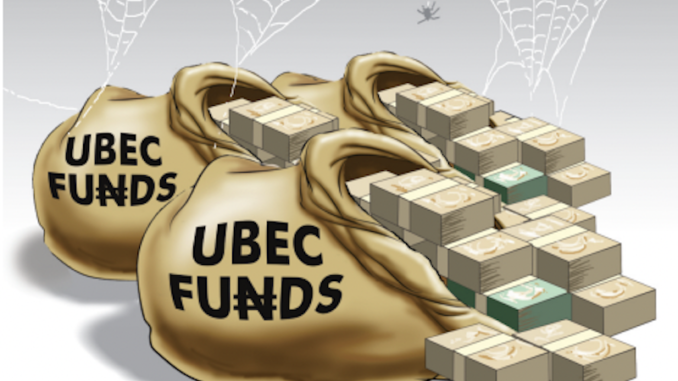
It is unfortunate that many states constitute threats to the future of the nation
Recent reports that no fewer than 27 states in the country have failed to access the sum of N54.9 billion basic education fund provided by the Universal Basic Education Commission (UBEC) are quite disturbing. Despite the growing number of out-of-school children across the country, many of the governors had been shunning this special federal government intervention fund due to the demand of counterpart funding, which is a needed demonstration of seriousness for entitlement. But by shunning UBEC because of counterpart funding the governors are downplaying their commitment to transparency and accountability to the people whose interests they have sworn to protect.
In a bid to help the Nigerian child access good education, especially at the foundation level, the federal government established UBEC in 1999. Its mandate is to administer a fund to all the 36 states of the federation as part of measures to standardise primary education. Unfortunately, authorities in many of the states have chosen to imperil the future of children by refusing to access the grants that have accumulated to the tune of N54.9 billion as of the end of March 2024. This is simply because they do not want to be accountable.
The UBEC fund is an annual grant by the federal government to help the states upgrade their primary education facilities to provide a good educational foundation for the nation’s children. To access the fund, state governments are required to match the federal government’s grant strictly for primary education expenditure. But many states have ignored this facility even as children study under very deplorable conditions, including having lessons under trees and dilapidated classrooms while the quality of teachers remain suspect in many cases. In these lean times, it is unfortunate that many state governors have not realised the importance of the facility intended to secure a solid foundation for the future of their children. Indeed, records abound of reckless and frivolous expenditures by many states, despite the difficulties in meeting their basic responsibilities, even in the primary education sector.
It is even more disheartening that some states in the North today are not enforcing the UBE law which requires every child to be in school from primary to junior secondary school at the expense of the state. Many northern states have also failed to access the UBEC Fund because they are required to contribute to the funding. Allocation per state has hardly ever gone beyond half a billion naira per annum, yet some states argue that this is too much for them to commit as counterpart fund.
Ordinarily, primary education does not fall within the purview of the federal government and the two per cent of the Consolidated Revenue Fund (CRF) it set aside for equal distribution to all the 36 states and Federal Capital Territory (FCT), to support basic education was a response to a felt national need. While this intervention fund is not supposed to be the main or alternative fund for that critical education sub-sector, many state governments speak about it with a sense of entitlement. Interestingly, the states complaining of inadequate funds to rebuild classroom, train teachers and provide instructional materials are the ones putting forward all sorts of arguments against rules for access to the special intervention funds.
Indeed, in 2014, the governors made spirited efforts to amend Sections 9 (b) and 11(2) of the UBEC Act that spell out criteria for entitlement to the funds. Specifically, the governors wanted to collect the intervention fund without providing the necessary equivalent funding, which is needed to demonstrate their seriousness. The Goodluck Jonathan administration resisted the amendment because of the poor handling of the funds by most state governments, which reinforced the need for strict monitoring of its disbursement and utilisation.
END

Be the first to comment